5 Movies That Were Based On Much Sadder True Stories

Movies based on a true story have a fine line to walk: They have to be entertaining, yet at least try to pretend that they care about factual accuracy. You can only have Sully tame so many lions before people start to question your film's commitment to the truth. But even if the movie gets it all right during the runtime, there's always something left out. And sometimes, what's left out changes the whole story...
Into The Wild: Family Abuse Drove Christopher McCandless Away In The First Place
Based on the bestselling book by Jon Krakauer, Into The Wild is the story of Christopher McCandless, a troubled young man who wanders the country, hitchhiking and generally interacting with all sorts of people. Eventually, he makes his way to the Alaskan wilderness, where he sets up shop in an abandoned bus on the Stampede Trail, and tragically perishes due to lack of appropriate supplies and outdoor skills. Neither the book nor the movie explicitly stated McCandless' reasons for his walkabout, so his motivation was anybody's guess. Some viewed him as an anti-capitalist free spirit hippie who rejected the shallowness of typical American life, while others thought he was just some jackass kid who had zero clue what he was doing. In reality, he was mostly just a traumatized young man running away from an abusive home.
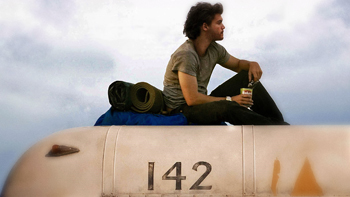
McCandless' sister Carine recently wrote her own book, The Wild Truth, in which she describes the savage beatings her violent and alcoholic father dealt both her and Chris, and how their mother did nothing to stop this. Walt McCandless would force the two siblings down side by side, and beat them with his belt. She describes the "look of sadistic pleasure that lit up my father's eyes and his terrifying smile -- like an addict in the climax of his high." Carine had already shared this information with Krakauer in the 1990s but asked that he keep it off the record. Krakauer obliged, though he couldn't resist dropping in several subtle hints about an "overbearing" father.
Once you know that, the whole movie radically changes its tone. Every scene where McCandless is trying to opt out of society and refuses to keep in touch with his family becomes an abused kid running away so that nobody can hurt him again. By leaving that bit out, Christopher comes across as kind of a dick for leaving his parents worrying while he traveled the country, having a blast.
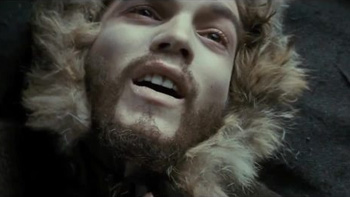
The Lone Hope Of Friday Night Lights Ended Up Becoming The Exact Thing He Was Trying To Escape
Friday Night Lights is the story of what happens when a whole town takes high-school football way too seriously. That is, everyone except safety Brian Chavez, a genius football player who is going to Harvard after he finishes playing football. Chavez is the only character in the movie able to look beyond football, and beyond life in their small town, to something bigger. Chavez is the proof that Permian High School's football culture can't get to everyone. He's using football, not getting used by it. He's going places. He has a real future. He ... ends up a desperate man, trying to relive his glory days, and starting fist fights at strange house parties?
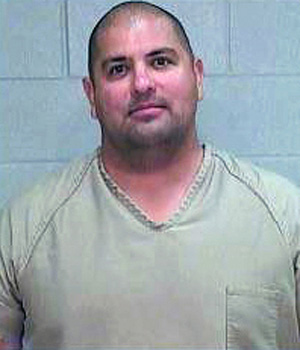
Brian Chavez did go to Harvard. He even got a law degree. But then he moved back to Odessa and started going to Permian football games with one of his old teammates, longing for his old glory days on the field. That's ... the exact opposite the character in the movie gives us. One day, angered by a historic Permian loss in a heated rivalry game, Chavez rounded up a posse, broke into a house party and started brawling with the attendants, which is a move Harvard-educated lawyers generally advise against. His motivation: His girlfriend's ex-husband was at the party, and had been fighting with her over the phone while Chavez was trying to watch the game.
And just like that, Chavez had gone from the envy of the town to the old, former high-school football star getting drunk at games and starting fights when the team loses. He was forced to plead guilty to "burglary with intent to commit assault," then settle lawsuits with the victims. Although he avoided jail time, he did have his law license invalidated by the Texas State Bar.
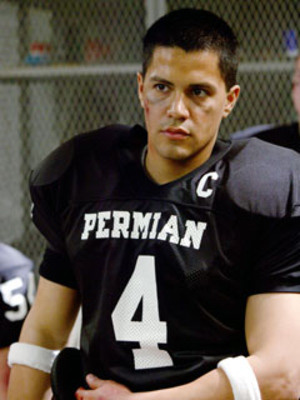
Fortunately for Chavez, he seems to have turned his life around since the incident. Unfortunately for Friday Night Lights, he had already demolished the sole ray of hope in the movie. The pull of Permian high-school football was too much for even the smartest and most grounded player to escape. The only person who understood that "it's just a game" couldn't get away from the poison nostalgia of past football glory.
Woody Allen Tried To Live Like His Character In Manhattan (By Harassing His 18-Year-Old Co-star)
Woody Allen is no stranger to writing thinly veiled biographies of himself, nor to attempting to bone inappropriately aged women. So it's no surprise that he wrote a film like Manhattan, where he plays a comedy writer dating a 17-year-old girl. While that is a bit sketchy, don't worry: In reality, he waited for the lead actress to turn 18 before trying to bang her.
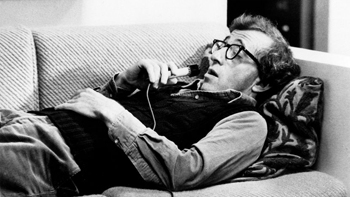
In 2015, Mariel Hemingway -- Allen's co-star in the film -- wrote a book called Out Came The Sun, in which she describes how Allen randomly flew to her parents' home in Idaho after she'd turned 18, and tried to convince them to let her go on a trip to Paris with him. They were oddly cool with the idea, but Mariel had a hunch on where the wind was blowing. The then 44-year-old Allen was developing a less-than-healthy crush on her. She became concerned about the sleeping arrangements on the trip, which Allen had left (perhaps intentionally) vague. Ultimately, she dodged the bullet by going into his guest room in the middle of the night, waking him up, and flat out stating: "I'm not going to get my own room, am I? I can't go to Paris with you."

To make things even creepier, Allen was technically Hemingway's first kiss. She had never been kissed before the cab scene in Manhattan, and recalls being terrified about it for weeks. And for good reason: When the time came, she remembers Allen attacking her "like she was a linebacker."
Gale Sayers' Early Onset Dementia Makes Brian's Song Even Darker
Brian's Song is the true story of two Chicago Bears players, white Brian Piccolo and black Gale Sayers. They overcome the racial strife of the era and their own wildly differing temperaments to become best friends, until Piccolo tragically dies of cancer. It's pretty much the ultimate "guy cry" movie. (The 2001 remake will also make you cry, but for different reasons.)
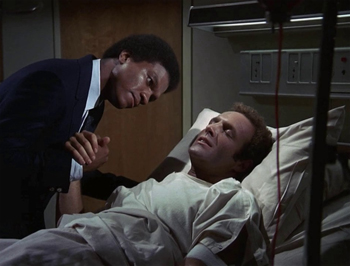
In the movie, Piccolo and Sayers develop their bond when Piccolo forces a despondent and melancholy Sayers to rehab his injured knee, so that he can get back on the field and play. He runs with him every day, verbally challenges and motivates him, and even moves a weight machine into his house -- all to aid in the rehab process.
Back in 1971, this was viewed as the selfless actions of a great friend, but these days the whole uplifting experience reads more like a guy unwittingly marching his friend towards his doom. Today, Gale Sayers is in his 70s, and suffers from dementia that, according to his lawsuit against the NFL, has mostly to do with his years as a player and the various concussions that came with it. It's not just dementia, either: Alzheimer's, depression, memory loss, sleep problems, irritability -- he's uh, not a happy camper.
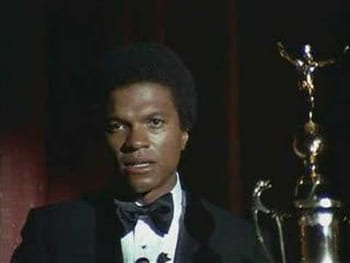
It's difficult to know just how much of Sayers' faculties were destroyed by playing football, but his doctor flat-out says that the game is partially to blame. So when Piccolo, a guy who died of cancer at 26, was inspiring Sayers to go back to football, he was actually just proactively murdering his friend's brain. Man, Brian's Song. Even for you, that's pretty bleak.
Chris Kyle's Lies Throw Every Part of American Sniper Into Question
The screenwriters of the Chris Kyle biopic, American Sniper, definitely fabricated a bunch of stuff for the film. While lying and exaggerating in biopics is nothing unexpected, doing so is actually tonally perfect for the biography of Chris Kyle -- since he, himself, made up more stories than a kid with a Canadian girlfriend.
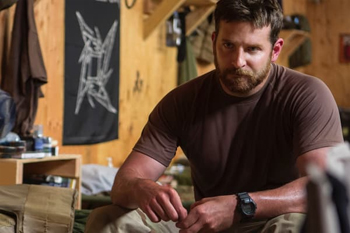
He has allegedly stated that after Hurricane Katrina, he traveled to New Orleans and killed a whole bunch of looters. Kyle insisted that anti-war protesters called him a "baby killer," which no other source could vouch for. In his book, he says that he found chemical weapons from Germany and France in Iraq, which presumably came as a hell of a surprise to all three countries. Kyle even claimed that he killed a couple of guys trying to steal his car at a Dallas gas station, but was released by "a high-ranking government official." It's just not a conspiracy unless there are high-ranking government officials, secret murders, and Dallas, Texas.
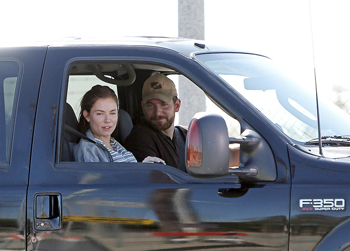
The least sexy, but probably craziest fabrication was when he lied about the number of military medals he was awarded. Why would he do something like that? The guy is verified as the deadliest sniper in American military history, yet he felt the need to make himself seem somehow even more accomplished. He claimed to have punched Jesse Ventura for saying that the Navy SEALS "deserved to lose a few." This one was so egregious that Ventura took things to court, and won a $1.8 million lawsuit against Kyle (or rather, his estate, because Kyle had already been killed at the time of the decision). If there are levels to lying, doing it so hard that the court orders an American hero's widowed wife to cough up close to two million dollars means you've hit the cap.
